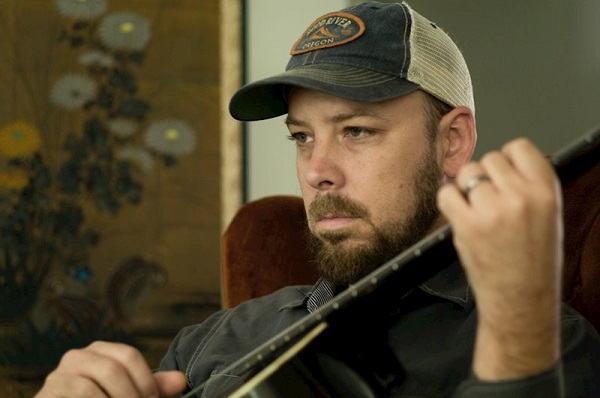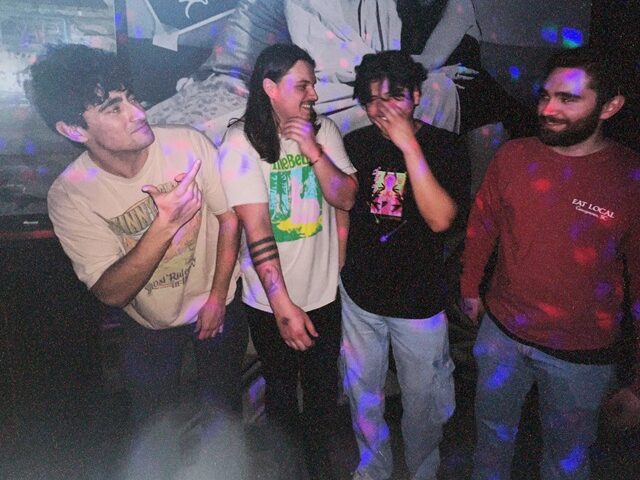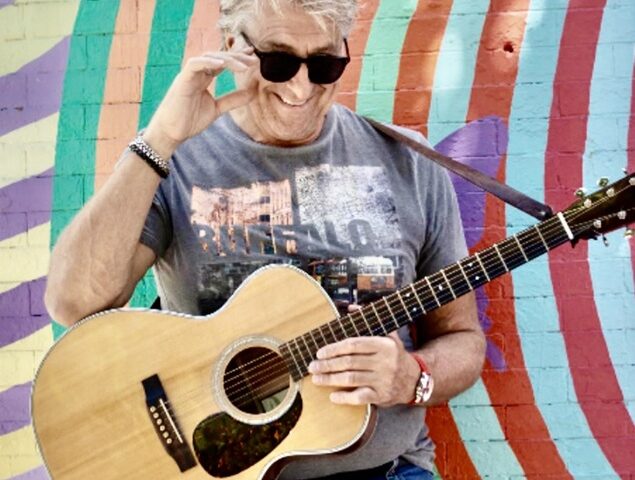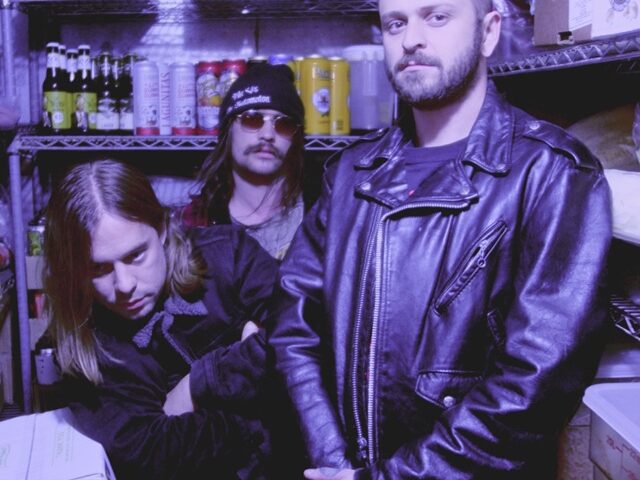
Below is our interview with Washington-based artist Ryan Costello, whose album ‘Moon Song‘ released in October. He was also formerly the lead singer of previously featured Florida-based indie-folk band The Oaks.
Your new album, Moon Song, presents an ardent, haunting folk sound. There’s a recurring theme about creating art in darkness/night. What inspired you to pursue this nocturnal feeling on the aptly titled Moon Song?
I find myself drawn to this feeling for both aesthetic and technical reasons.
For the aesthetic, I love the haunting feeling that the acoustic guitar can create just by itself with a bit of verb. High and lonesome, dissonant and brooding, just a soul existentially alone under the moon and in the elements. Complex chords with layered dissonance naturally lend themselves to exploring complex human emotions – loss, regret, struggle, joy in suffering, chronic pain, longing. So I’m trying to use the ambience to breathe with the instrument, as if the air in the room was swirling and surging, which adds a further layer of complexity. I love the sound of a drone, so I will use bowed guitars, picked harmonics, banjo resonance, synths, my voice, all through delay and reverbs to create a drone of textural layers. Sonically, I like the feeling of the subject lost in the void.
On the Technical side, there is so much detail of resolution in digital recording, and it can layer so transparently, that it naturally lends itself to a building up of textures. Digital brings new detail to spring reverbs, bucket-brigade delays, those old ‘dirty’ technologies that can now be used to draw out acoustic guitar resonance and layer it upon itself with deep complexity. Sometimes I find digital recording can sometimes sound a bit sterile and naked with so much detail in the midrange, so instead of fighting it I am continuing to explore how to use that detail to create a breathing textural ambience.
You have written a book about art, philosophy, and recording, called The Mythology of the Artist. How does music and philosophy interweave for you?
I feel that music flows directly from philosophy, and bypasses the mind to connect to the heart in an unconscious way. If philosophy is a mode of being, and music is a way of transmitting a mode of being, then music is transmitting philosophy. Unfortunately, musicians have often just gone with the prevailing mode of being of their age, whether that was hedonism in the 60s or nihilism in the 90s, and haven’t created the deepest musical philosophy we could have. The ‘Rock Star’ has been mythologized as defiantly self-destructive, the ‘Genius’ uses up muse after muse and leaves a trail of broken lives. In my opinion those are flawed philosophies. So I’ve been thinking of other philosophies on which to build a mode of being, out of which deep music can flow.
This is what my friend Levi calls my ‘teleological’ way of thinking. It is teleological because it starts with the end in mind, so in my opinion it’s actually the most practical way to think because humans are doers who are always needing things done. I start by asking: what kind of philosophy could produce great music? In that way, with the teleos (end) in mind, I narrow my field of potential philosophies tremendously, because I only want to allow ones that help me to thrive and create great music. When you study the lives of musicians to date, it’s clear that they can sometimes be fundamentally flawed in ways that are abusive and self-destructive. So I need a philosophy that can head that problem off, so that I can continue to actually thrive and be an artist for a long time.
Sometimes a song just needs to express a deep emotion, like a song about loss. But my philosophy can still provide hope in the background, even in the midst of deep loss. So it’s hope overlayered with loss, and that musical lens is created out of my philosophy.
Has your past experience as lead singer and songwriter of the band The Oaks helped with your solo home recordings and overall creative process today?
Very much so, I’m really just a continuation of that person who was leading The Oaks, and the great musicians in that band poured their thoughts into me and really helped make me who I am now. Just the raw process of creating, doing that many times over, has helped me to understand the rhythm of my own way of creating more deeply. For example, it’s not that I don’t have feelings of insecurity about my own art, especially when I’m trying something new, but I am just getting more experienced at powering through it and trying something new in spite of it.
What was the first album you heard that had a strong impact, either artistically or personally?
In the vein of the stuff I’m doing now, I refer often back to Beth Orton’s Trailer Park, from ‘96. I had never heard acoustic music done in an atmospheric way so beautifully, and I still feel that way about it. It’s incredibly tasteful, poppy at times, but it then it can suddenly go quite deep. You can turn it up and feel swept up in the mix of acoustic and electronica elements, like upright bass with moog synth drones.
Do you have a specific process or ritual when creating new music?
My current idea is to create an atmosphere that is conducive to creativity. So in my studio space I made it beautiful looking and sounding. I usually put beard oil in my beard, I have a special blend that I made of all natural oils. I might listen to someone like Beth Orton to get in a mood. So I try to create beauty all around, in every sense, sight, smell, and sound.
Any favorite artists or albums you’re listening to at the moment?
I’ve really been enjoying Copenhagen and London jazz artists, like Rotem Sivan, Rob Luft, and Helge Lien Trio. At Christmas I love the Emmy Lou Harris’ Light of the Stable album (with Neil Young and Dolly Parton!). I’m always listening to Bob Dylan, Cat Power, and Radiohead. When I exercise it’s 90s city, like Rage Against the Machine and Soungarden.
If you could collaborate with any artist, alive or dead, who would it be?
I think Miles Davis in his earlier years. He was just supremely creative.
What do you find is the most satisfying part of being an artist?
It’s satisfying to create, and even if I never reach artistic perfection I can share in my attempt which has its own satisfaction.
What is the biggest challenge you find in today’s music industry?
There is so much noise, it’s very hard to separate out the true signal. So that makes it difficult for fans to discover good stuff. For the artists, the curve is too steep, only the top-streamed artists are really making a good income. I think it would benefit Silicon Valley if they created an ecosystem in which musicians can make a living. Then you’ll have greater diversity of creations, with more masterpieces being created, because musicians could devote themselves to their music. There is demand (consumers) and there is supply (musicians), it’s just the ecosystem is broken. Now it needs to be fully mended.
What’s upcoming for the project?
I’m still adding to the Moon Song album, I’ve decided to just release things as they are made. I actually have around 8-10 more songs I haven’t been able to record, so I’m working on them now. After that, I’m hoping to do more collaboration in 2022! hmu





